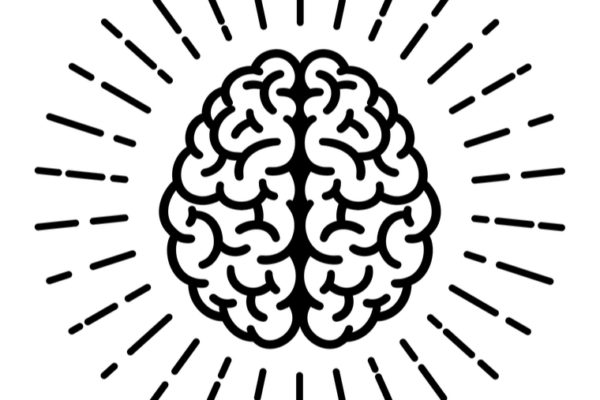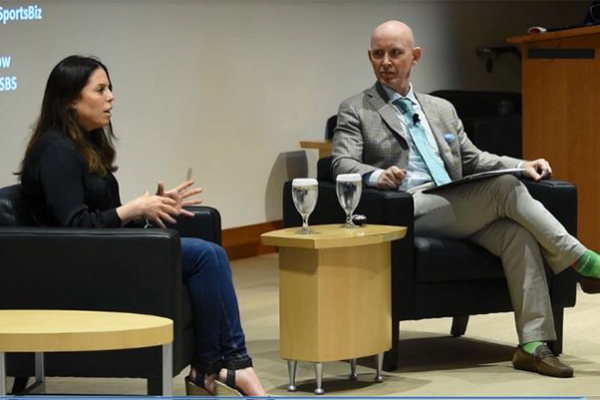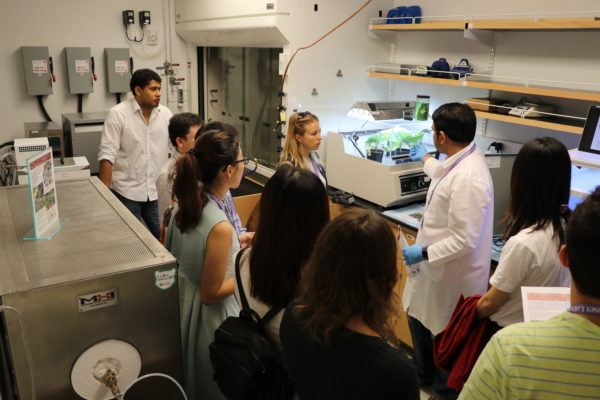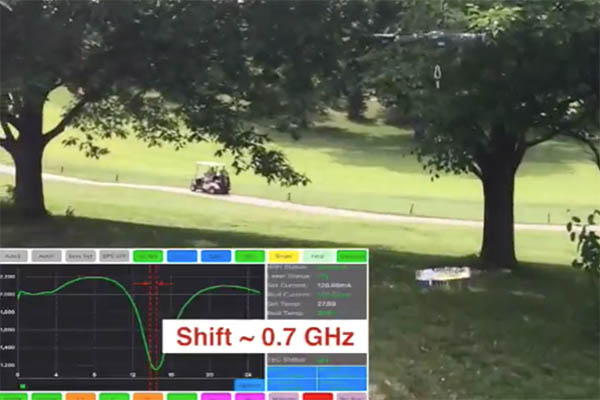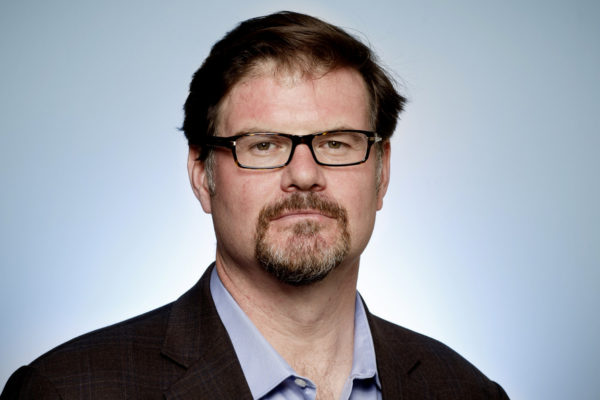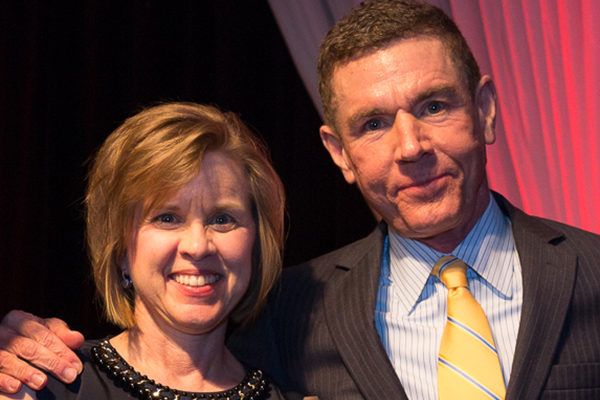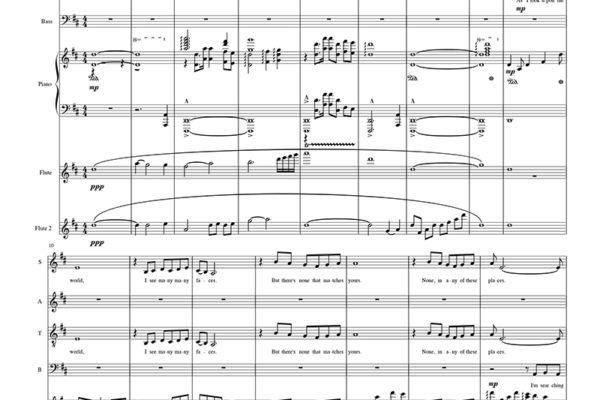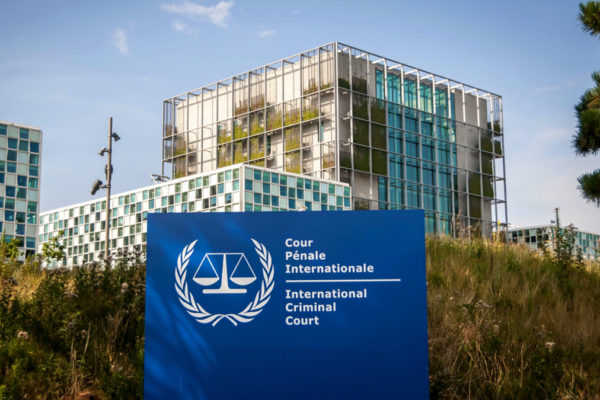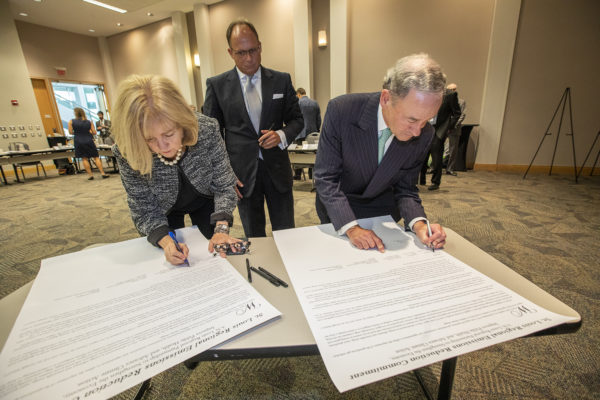Diving in to how our brains process information
Why don’t you eat your friend’s lunch when you are hungry? Cognitive control. Researchers at the School of Engineering & Applied Science and Arts & Sciences at Washington University in St. Louis are working together to better understand this aspect of cognition.
Olin Sports Business Summit Sept. 14
The 4th annual Olin Sports Business Summit takes place Friday, Sept. 14, at Washington University in St. Louis. The daylong seminar opens the 2018-19 Lacob Family Business of Sports Speaker Series.
Research comes full circle at International Aerosol Conference
More than 1,500 of the world’s preeminent aerosol scientists gathered in St. Louis for the 10th International Aerosol Conference. The School of Engineering & Applied Science helped organize the meeting and presented talks on a wide range of aerosol topics: from air quality and pollution, to better drug delivery for cancer patients.
Dave Hullfish Bailey named 2018-19 Freund Teaching Fellow
The Saint Louis Art Museum and the Sam Fox School of Design & Visual Arts at Washington University in St. Louis welcome Dave Hullfish Bailey as their 2018-19 Henry L. and Natalie E. Freund Teaching Fellow. Designed to promote the creation and exhibition of contemporary art as well as the teaching of contemporary art principles, the fellowship consists of two month-long residencies, during which Bailey will lead studios in the Sam Fox School while preparing an exhibition for the museum’s Currents series.
Enabling ‘internet of photonic things’ with miniature sensors
Swapping electrons for photons, researchers in the School of Engineering & Applied Science have developed wireless sensors which are not subject to electromagnetic interference and are smaller and generally more flexible than the currently electronics-based technology.
‘Access to Justice’ is focus of law speaker series
The 2018-19 “Access to Justice” Public Interest Law & Policy Speakers Series at Washington University School of Law in St. Louis will address a spectrum of high-profile issues including American politics, immigration policy, the U.S. Supreme Court, the #MeToo movement, criminal forensics and gun violence. The first speaker is Jonah Goldberg, political analyst and senior editor for the National Review, Tuesday, Sept. 18.
Cordell Institute to take on issues of ethics, policy in data-driven health care and beyond
To tackle important questions of policy and legal ethics in the field of human health and beyond, Washington University School of Law alumni Joseph Cordell (LLM ’08) and Yvonne Cordell (JD ’88) have made a $5 million commitment to establish and endow the Joseph and Yvonne Cordell Institute for Policy in Medicine & Law.
Personal loss, passion for music inspired Common Reading Program winner
First-year student Nick Massenburg-Abraham was not familiar with this year’s Common Reading Program selection “Balzac and the Little Chinese Seamstress” or its author, Dai Sijie. But he does know something about the novel’s central theme: loss. He transformed this personal experiences into the musical composition “Reflections in D Major,” which won the grand prize for the Common Reading Program contest.
WashU Expert: Threatening the International Criminal Court could further isolate the U.S.
National security adviser John Bolton, a longtime critic of the International Criminal Court, threatened to impose sanctions on court personnel if the court continues with an investigation into alleged U.S. war crimes in Afghanistan. The move could easily backfire, says international war crimes expert Leila Sadat.
International coalition, regional partnership tackles climate change
Washington University in St. Louis is now a member of the University Climate Change Coalition or UC3, a network of research universities dedicated to accelerating climate change solutions. As part of its commitment, the university recently partnered with regional leaders to collaborate for a greener, cleaner St. Louis.
View More Stories
